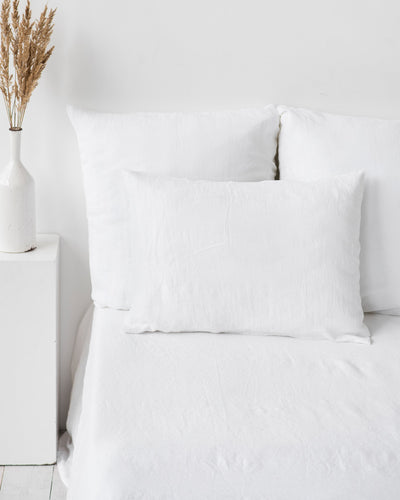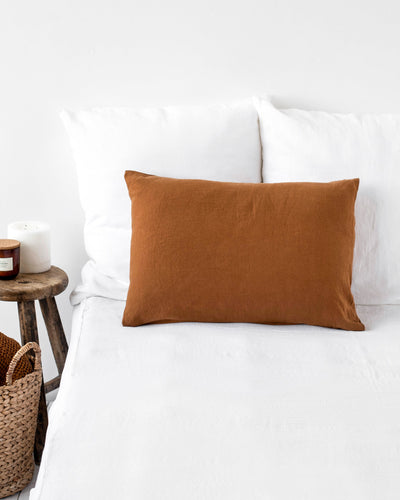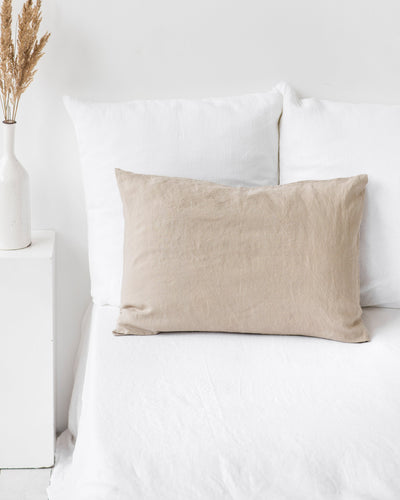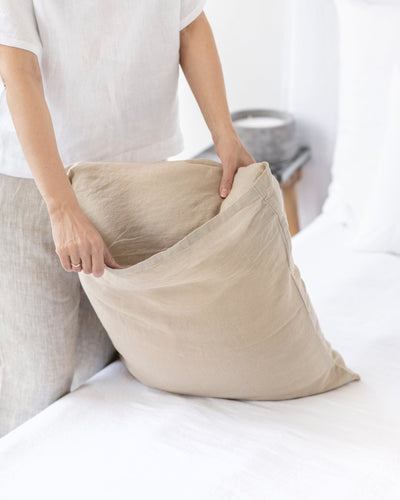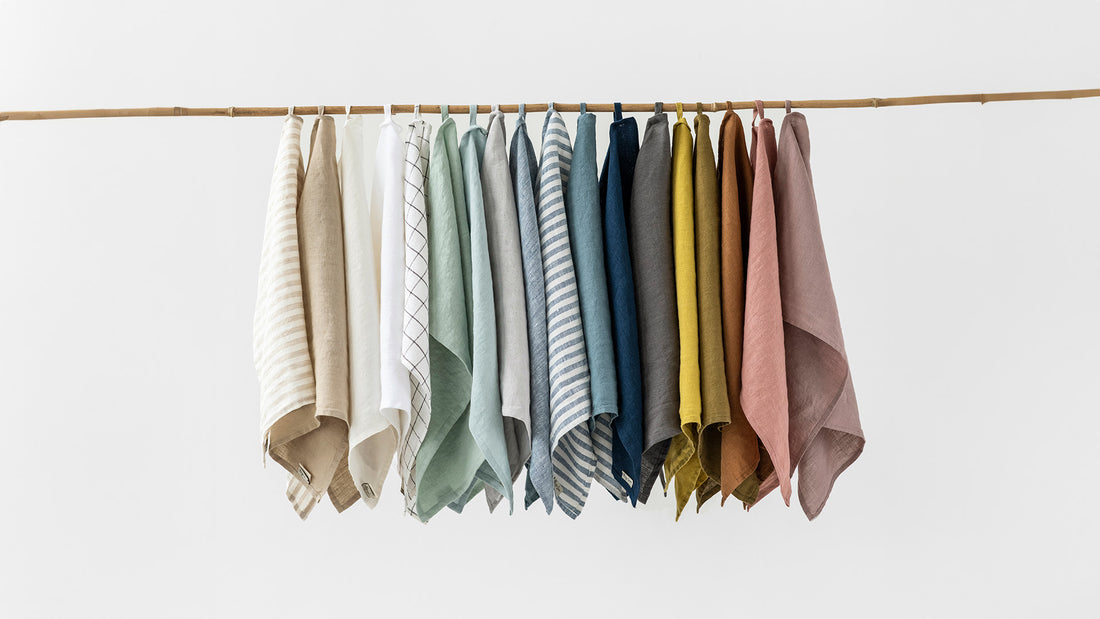
Towel Care 101: How to Keep Them Feeling Soft and New
Towels play a vital role in our daily lives, offering comfort and functionality. However, maintaining that towel's softness and freshness takes some knowledge. Different fabrics have different care requirements. If you’re not careful enough, you can ruin your towel's durability and absorbency.
In this guide, we'll explore the nuances of towel care, covering various materials, washing techniques, and special care tips.
Types of Towels and Their Care
There are a wide variety of towels on the market. However, their care is different. With some fabrics being more demanding and others lasting years without specific care requirements, it’s important to know how to keep them fresh and clean.
Cotton Towel Care
Towels made of cotton are soft, absorbent, and breathable. Various types of cotton can have different capabilities. For instance, towels made from Egyptian cotton are known for their luxurious feel, while Turkish cotton is valued for its long fibers and absorbency.
To keep cotton towels durable, you need to pay special attention to their care. Here’s some advice:
- Wash before use. Before using new towels, it's advisable to wash them first. This helps to remove any finishing treatments or residues from the manufacturing process and enhances the towels' absorbency.
- Avoid fabric softeners. Fabric softeners can leave a residue on towels, reducing their absorbency. Instead, use a small amount of mild detergent. You can also add vinegar to the rinse cycle occasionally to help remove any soap buildup and keep towels soft.
- Avoid high heat. Even though high is good for hygiene, it can damage the cotton fibers and make towels feel rough. Use a medium to low heat setting when drying your towels. If possible, line-dry them to preserve their softness.
- Dry promptly. Promptly remove towels from the washing machine once the cycle is complete to prevent mildew and musty odors. Avoid leaving wet towels in the laundry basket for an extended period.
- Skip the bleach. While bleach can be effective at disinfecting and whitening, it can also weaken the fibers in towels. Consider using oxygen bleach or natural alternatives if you need to whiten your towels.
- Avoid ironing. Cotton towels generally do not need to be ironed. If you prefer a smoother appearance, you can fold them neatly when they are still slightly damp after drying.
Microfiber Towels Care
Microfiber is a synthetic material known for quick drying and high absorbency. They are perfect for traveling and use at the gym or pool.
To maintain their effectiveness and prolong their lifespan, here are some tips for caring for microfiber towels:
- Use gentle detergent. Choose a mild, liquid detergent without additives like fabric softeners, bleach, or strong scents. These additives can clog the microfiber's fine fibers and reduce their absorption ability.
- Avoid fabric softeners and dryer sheets. Fabric softeners and dryer sheets can leave a residue on microfiber towels, making them less absorbent. Instead, use a small amount of detergent without any additives.
- Wash in warm water. Use warm water for washing microfiber towels. Avoid hot water, as it can damage the fibers over time.
- Use low heat in the dryer or hang it to dry. Microfiber towels dry quickly, and high heat can damage the fibers. Opt for a low-heat or no-heat setting when using a dryer. Air-drying is an excellent alternative and helps maintain the towel's softness and absorbency.
- Wash with similar items. Wash microfiber towels with other microfiber items or similar materials. Washing them with heavier items or those with zippers or buttons can cause friction, leading to pilling.
Linen Towel Care
Linen towels are known for their durability, absorbency, and natural texture. They are simple to care for but may wrinkle easily. To keep your linen towels in excellent condition, follow these maintenance tips:
- Separate by color. Wash linen towels with similar colors to prevent color bleeding. Dark-colored towels, especially, should be washed separately to avoid transferring dye onto lighter towels.
- Use mild detergent. Choose a mild, liquid detergent without harsh chemicals. Linen is a delicate fabric, and using a gentle detergent helps maintain its fibers.
- Wash in cold water. Use cold water to wash linen towels. Hot water can cause linen to shrink and lose its natural texture, while cold water helps preserve the fabric's integrity.
- Avoid fabric softeners. Fabric softeners can leave a residue on linen fibers, reducing their absorbency. Linen naturally becomes softer with each wash, so fabric softeners are unnecessary.
- Line dry or tumble dry on low heat. Line drying is the gentlest option for linen towels. If using a dryer, choose a low-heat setting to prevent shrinkage and maintain the fabric's texture. Remove the towels promptly to minimize wrinkles.
- Iron if desired. Linen naturally has a textured appearance, and many people appreciate the casual look. However, if you prefer a smoother appearance, iron linen towels in a medium setting while they are slightly damp.

Bamboo Towel Care
Bamboo towels are known for their softness, absorbency, and eco-friendly qualities. To maintain the quality of your bamboo towels, follow these care and maintenance tips:
- Wash before use. Before using your new bamboo towels, it's advisable to wash them first. This can help remove any finishing treatments applied during the manufacturing process and enhance their absorbency.
- Separate by color. Wash bamboo towels with similar colors to prevent color bleeding. Dark-colored towels, in particular, should be washed separately to avoid transferring dye onto lighter towels.
- Use mild detergent. Choose a mild, liquid detergent without harsh chemicals. Bamboo fibers are sensitive, and a gentle detergent helps preserve their integrity.
- Wash in cold water. Use cold water for washing bamboo towels. Hot water can damage the fibers over time. Cold water is gentler on the fabric and helps maintain its softness.
- Avoid fabric softeners. Fabric softeners can leave a residue on bamboo fibers, reducing their absorbency. Bamboo towels are naturally soft, and fabric softeners are typically unnecessary.
- Tumble dry on low heat or line dry. Bamboo towels can be tumble-dried in a low-heat setting. Alternatively, you can line-dry them to preserve their softness and reduce the environmental impact.
How Frequently Should You Wash Towels?
The frequency with which you should wash towels depends on various factors, including personal hygiene preferences, frequency of use, and the environment.
For instance, if you use a towel to dry off after every shower or bath, it is recommended to wash it every 3-4 uses. Towels can harbor bacteria and fungi due to the moisture they trap, so regular washing helps maintain good hygiene. However, if it's a guest towel, it's a good practice to wash them after each use to ensure cleanliness for different users.
You should also consider your environment and climate. In humid environments, towels may take longer to dry, providing a breeding ground for bacteria. If towels remain damp for extended periods, they should be washed more frequently.
You should also wash towels more frequently if you are sick or have a skin condition. This also applies if you have kids or pets, as clean towels prevent the spread of germs and help avoid exacerbating skin issues.
Now, if you have high-quality towels, you may need to wash them less often than lower-quality towels. While regular washing is still essential, high-quality towels are often better at resisting bacterial growth and odors.
The Final Stitch
If you want to keep your towels looking clean and fresh, it’s important to pay attention to their material. Each fabric has different care instructions. For instance, your linen towels shouldn't be washed in hot water, while bamboo towels don’t need fabric softener.
Make sure to get familiar with the care instructions for your towels, and you’ll keep them soft and fresh!
 United States
United States
